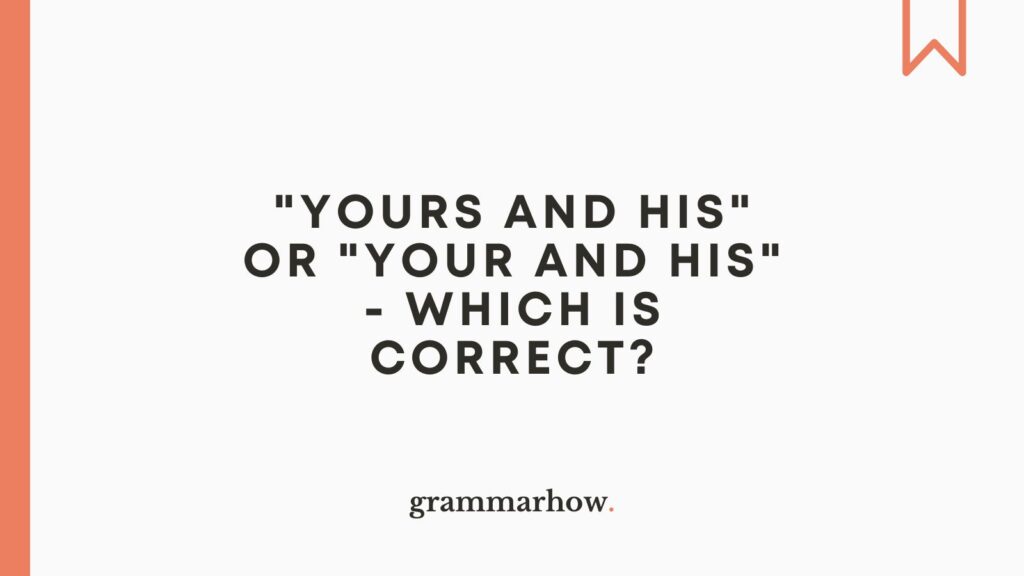Are you trying to figure out how to group the possessive forms “yours and his”? Well, you’ve come to the right place.
This article will explain how to share possession with another pronoun.
“Yours and His” or “Your and His” – Which Is Correct?
“Yours and his” is the correct phrase when using two possessives in the same clause. For instance, “that is yours and his responsibility.” “Yours” is the correct form whenever “your” comes with another possessive pronoun. “Your and his” is incorrect because “your” does not group with other pronouns.
KEY TAKEAWAYS
- “Yours and his” is correct and appropriate in written and spoken English.
- You should not use “your and his” in written English, though they might appear in spoken English.
- “Yours” should always be used when two possessives modify the same noun.
Here are a few more examples to help you understand it:
- Correct: That is yours and his idea.
- Incorrect: It is not your and his call.
Keep reading to learn more about the two forms and when you may come across them. There are a few things you need to be sure of before writing about them.
Yours and His
“Yours and his” is correct when two possessives own the same object. You can use both possessives before or after a noun to show who owns it.
Here are some examples showing you how it works:
- Yours and his dog is no good to us. We don’t want to see him around here again.
- That bag is yours and his, so do whatever you both need to do about it.
Generally, you can figure out the correct form by removing the noun. For instance:
- That is your idea and my idea.
Here, you have repeated the noun “idea.” To make things simpler, you can remove one of the nouns, but it means you must shorten whichever pronoun comes with it.
There are two variations that work, which are:
- That is yours and my idea.
- That is your idea and mine.
As you can see, removing one of the nouns will make “yours” the appropriate choice.
You can also switch the pronoun “his” with other variations. For instance:
- It is yours and mine, and I won’t let go of that fact.
- The child is yours and hers, right? Why don’t you treat them like your own?
Finally, you can even include a name after “yours” if you want to show “yours and (name)” possess something. For example:
- The house is yours and John’s, so I won’t overstay my welcome.
- It’s yours and Daniel’s. Why do you keep suggesting other ideas?
Your and His
“Your and his” is not correct. You should avoid using it in written English because it does not follow appropriate rules relating to “yours” when two possessives appear.
Take a look at these examples to show you how it works:
- Correct: It is yours and his, so I won’t touch it. I’m sorry it’s come to this.
- Incorrect: I know it is your and his, but why does that matter? I’d still like to join in.
In writing, you must only use “yours and his” (or “yours and hers” and other pronoun choices). That way, you make it clear who owns the specified object.
With all that said, “your and his” still appear in spoken English. You may also hear “his and your” when spoken as the rules are more relaxed.
Conclusion
“Yours and his” is the correct variation. You must stick to it in written English when you want to clear up who owns an object.
“Your and his” is incorrect, though you will often hear native speakers using it in conversational senses. After all, the rules are much more relaxed in spoken English.

